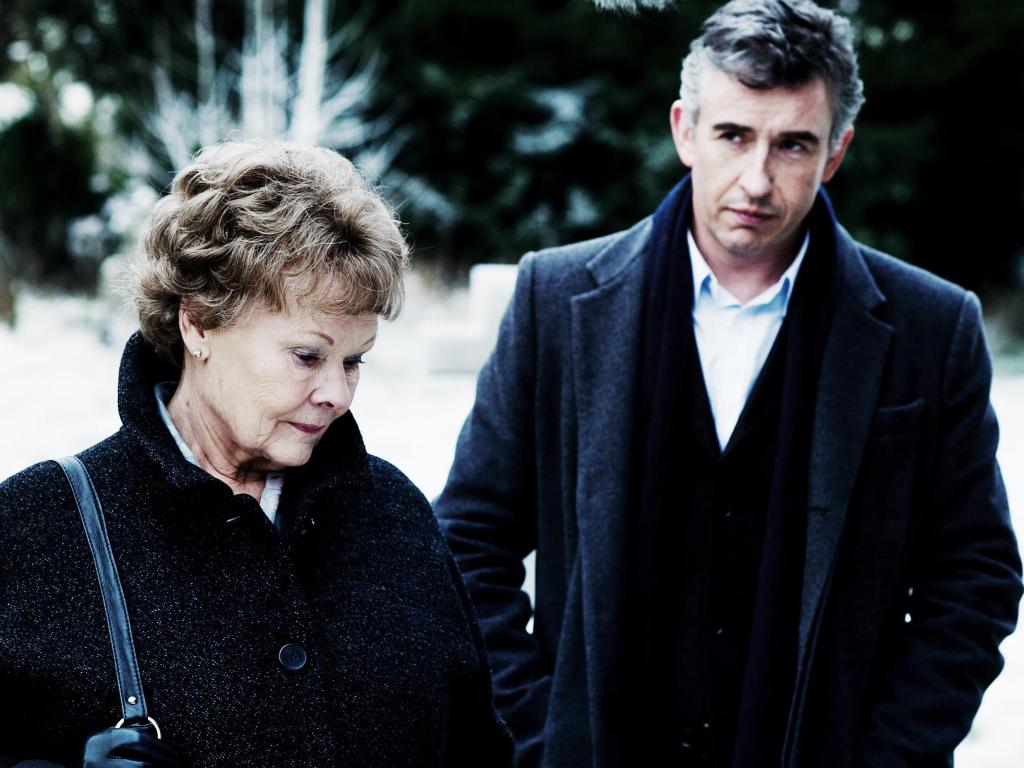It doesn’t shy away from the difficulties faced by the kindly old woman (Judi Dench, Skyfall) in searching for the son she was forced to part ways with almost five decades earlier, nor from the institutionalised, societally-sanctioned mistreatment that saw her status as a young unwed mother severely chastised. It doesn’t hide the obvious misgivings of the journalist, Martin Sixsmith (Steve Coogan, Alan Partridge: Alpha Papa), who assists her quest for answers in an act of self-preservation as much as compassion.
Yes, Philomena embraces the many troubles that fill its frames, cognisant of the way life takes unexpected, uncontrollable, unfair turns, yet the film need not broadcast its ups and downs with volume. The mood is not of resignation, but of understanding – that unfortunate things happen. The approach doesn’t downplay Philomena’s plight, or the extraordinary path it takes, but instead ensures it is relatable. As well as feeling for the feature’s protagonist, audiences are reminded, gently and calmly, of mistakes made, injustices suffered, and the hope for an acceptable resolution. This is all about human interest, focusing on a woman that comprises its epitome, and a man who abhors the very term.
Lurching from an Irish Catholic convent to the halls of America’s political power in an international road trip of sorts, Stephen Frears’ (Lay the Favourite) film follows the odd couple of Philomena and Sixsmith as they carefully seek a happy ending that may not be likely – but not for lack of trying. The film’s namesake is jovial and gentle, but haunted by the hurt of separation from her then-infant son. Her unlikely source of assistance, recently disgraced from his role as a government media advisor, pursues not only a story for a commission, but another chance at doing something worthy.
A tender true tale lurks at the core of the amiable effort, one first chronicled in Sixsmith’s book The Lost Child of Philomena Lee, and subsequently, sensitively adapted by Coogan and Jeff Pope (TV’s Mrs Biggs) for the screen. Even with its ample narrative, thematic and emotional developments, all grounded in the very meaning of sin, guilt, redemption and forgiveness, the film surprises in its simplicity and subtlety, just as it does with its use of delicacy over melodrama. Although circumstances dictate the flow of the film, Philomena is always less interested in events than it is in people.
Indeed, it is in the primary pairing that the film finds its heart, as perfectly cast. Frears immerses his leads in handsome imagery; however it is their rapport, not their surroundings, that draws the eye, an ideal marriage of the mis-matched. Dench is delightfully ensconced in the eccentricities of older age, rambling in her friendly character, but precise in her finessed performance. Coogan, in serious rather than comedic mode, has a more obvious arc of growth yet never forgets the complexity of someone thrust out of their comfort zone.
Warmth emanates from their chemistry, and from a film that – on paper, with its woes of taken children, illegal adoptions, no-nonsense nuns and upset young mothers – should be anything but. Perhaps that’s why Philomena whispers, or, more accurately, why it need not raise its voice; the belief in its central duo, and their resilience despite their challenging scenario, radiates the kind of grace that can’t be shouted about.
Rating: 3.5 stars out of 5
Philomena
Director: Stephen Frears
UK / US / France, 2013, 98 mins
Release date: December 26
Distributor: Hopscotch
Rated: M
